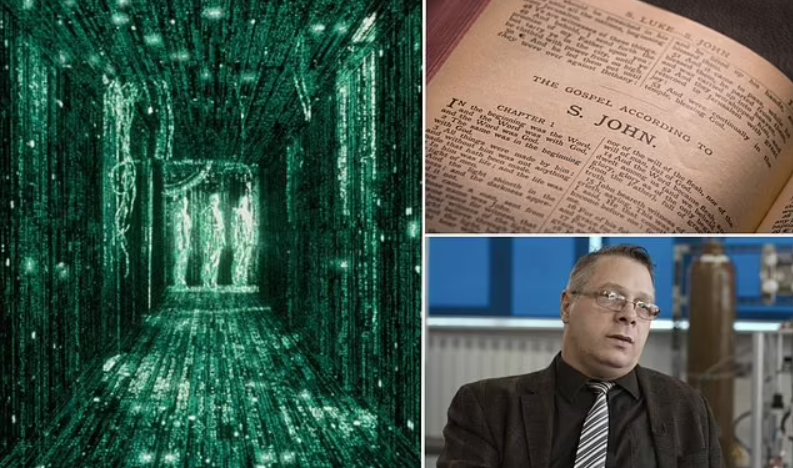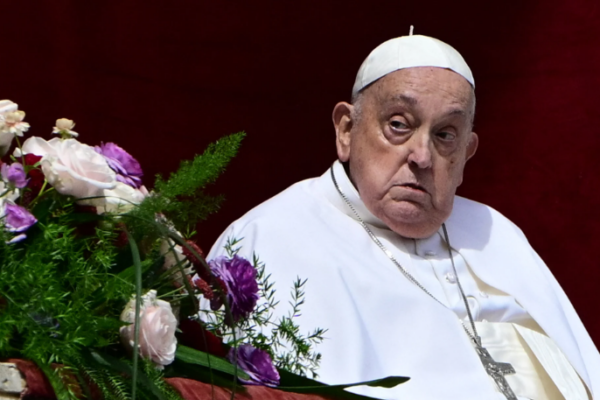Are we living in a simulation? Scientist claims we’re simply characters in an advanced AI world – and says the proof is hidden in the BIBLE
Amid the intersection of technology and metaphysical speculation, Melvin Vopson, an associate professor of physics at the University of Portsmouth, introduces a provocative thesis: our universe may indeed be an elaborate digital simulation.
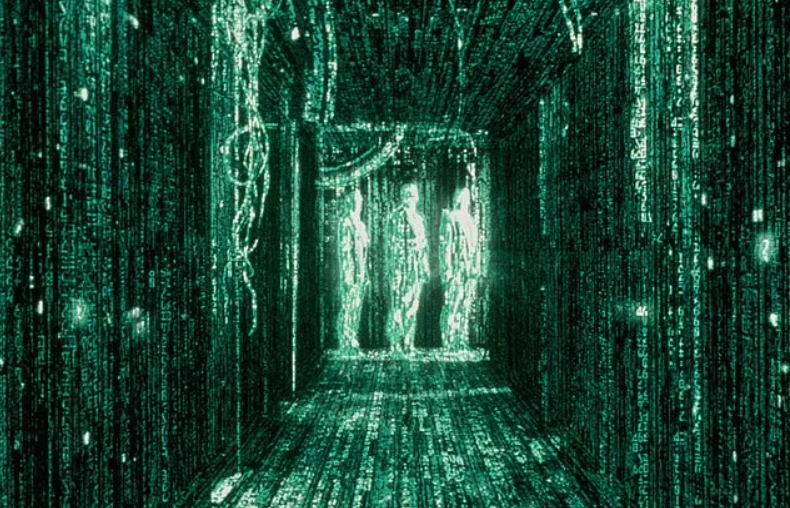
Drawing from religious texts and scientific theory, he suggests that familiar narratives from the Bible might actually reveal the digital coding underpinning our existence, merging ancient scripture with futuristic speculation.
In a striking assertion, Professor Vopson claims that the Bible, particularly the Gospel of John, may hold keys to understanding our universe as a simulation.

The opening verse of the Gospel—“In the beginning was the Word, and the Word was with God, and the Word was God”—is interpreted by Vopson not just as a foundational religious text but as a description of the universe’s underlying code.
This perspective posits that ‘the Word’ is analogous to the computer code that fabricates our perceived reality, suggesting a blend of divine creation and digital programming.
Theological and Technological Fusion
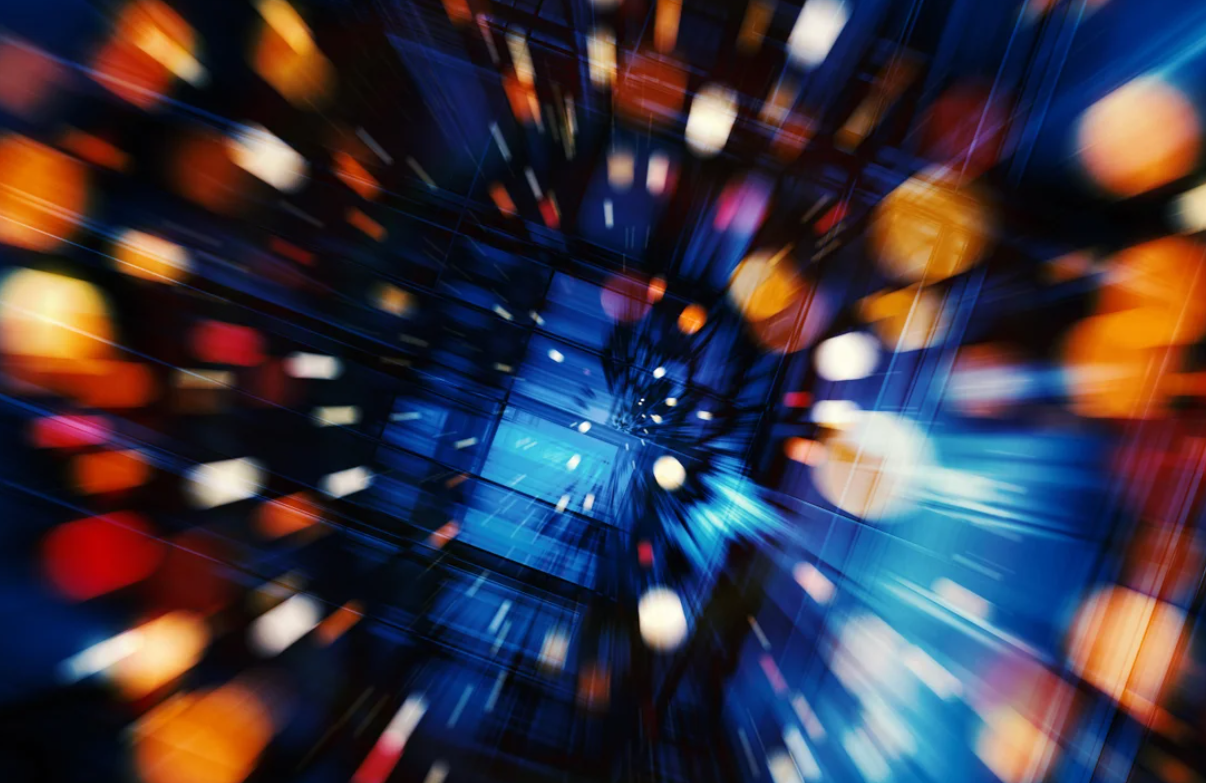
Vopson’s hypothesis extends beyond mere theoretical musings, suggesting that God, as described in these scriptures, might be integrally tied to the simulation’s code—potentially an advanced artificial intelligence (AI).
This idea aligns with the narratives seen in popular culture, such as The Matrix, where the notion of a simulated reality controlled by an omnipotent code is central. His interpretations venture into a territory where science fiction meets spiritual doctrine, challenging conventional views of both realms.
Symmetry, Speed, and Simulation
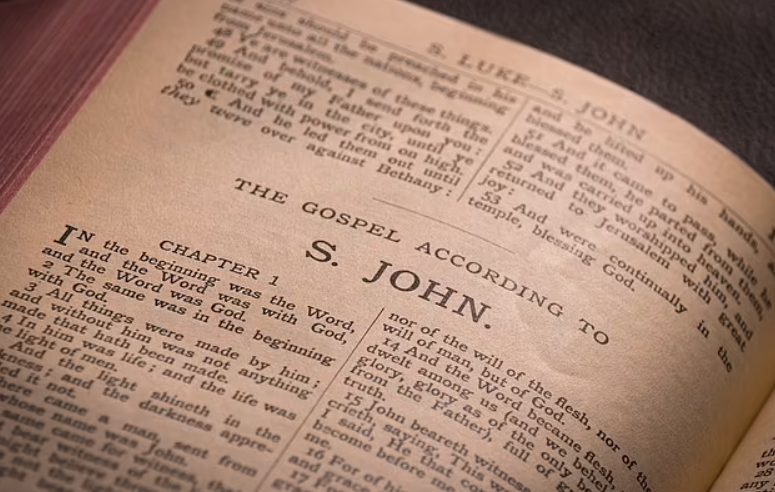
Further exploring the physical evidences of a simulated universe, Vopson points to the natural symmetries and limitations in speed (such as those of light and sound) as indications of a simulation.
These characteristics could be seen as computational efficiencies—ways to conserve processing power in a vast digital construct.
The prevalence of symmetry in nature, Vopson argues, is indicative of this, as it simplifies the complexity needed to render our environment, much like graphics in video games.
Philosophical and Pop Culture Parallels
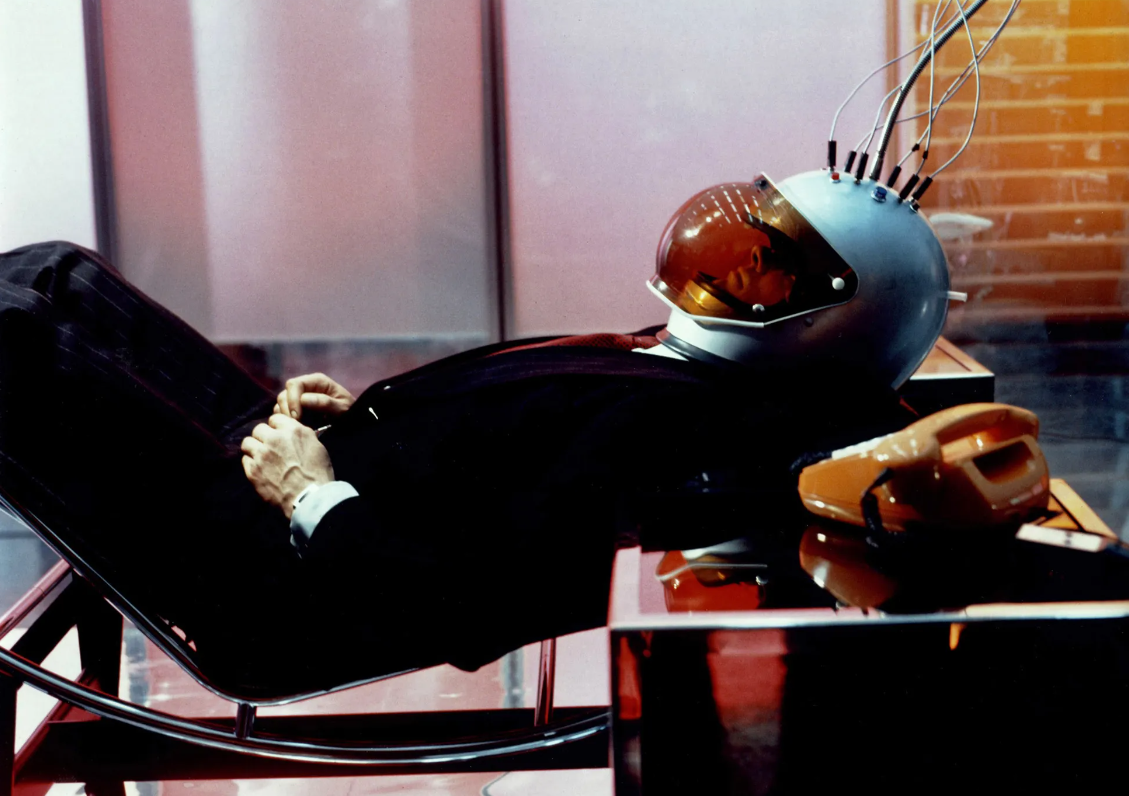
The simulation hypothesis is not solely Vopson’s domain but is echoed by notable figures like Elon Musk and Neil deGrasse Tyson, who speculate on the nature of reality as potentially fabricated layers of simulation.
This concept, which can be traced back to philosophical skepticism such as René Descartes’ Cogito, ergo sum, serves as a modern digital-era contemplation on existence and consciousness, suggesting that our ability to question reality is itself a sign of our existence, whether simulated or not.
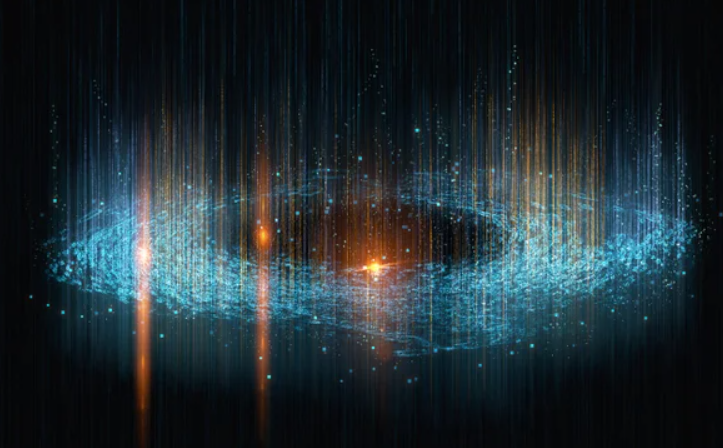
Vopson’s theory, while controversial, offers a unique lens through which to view both religious belief and scientific inquiry. It suggests a possible reconciliation between the need for a Creator and the scientific understanding of the universe as a programmable construct.
